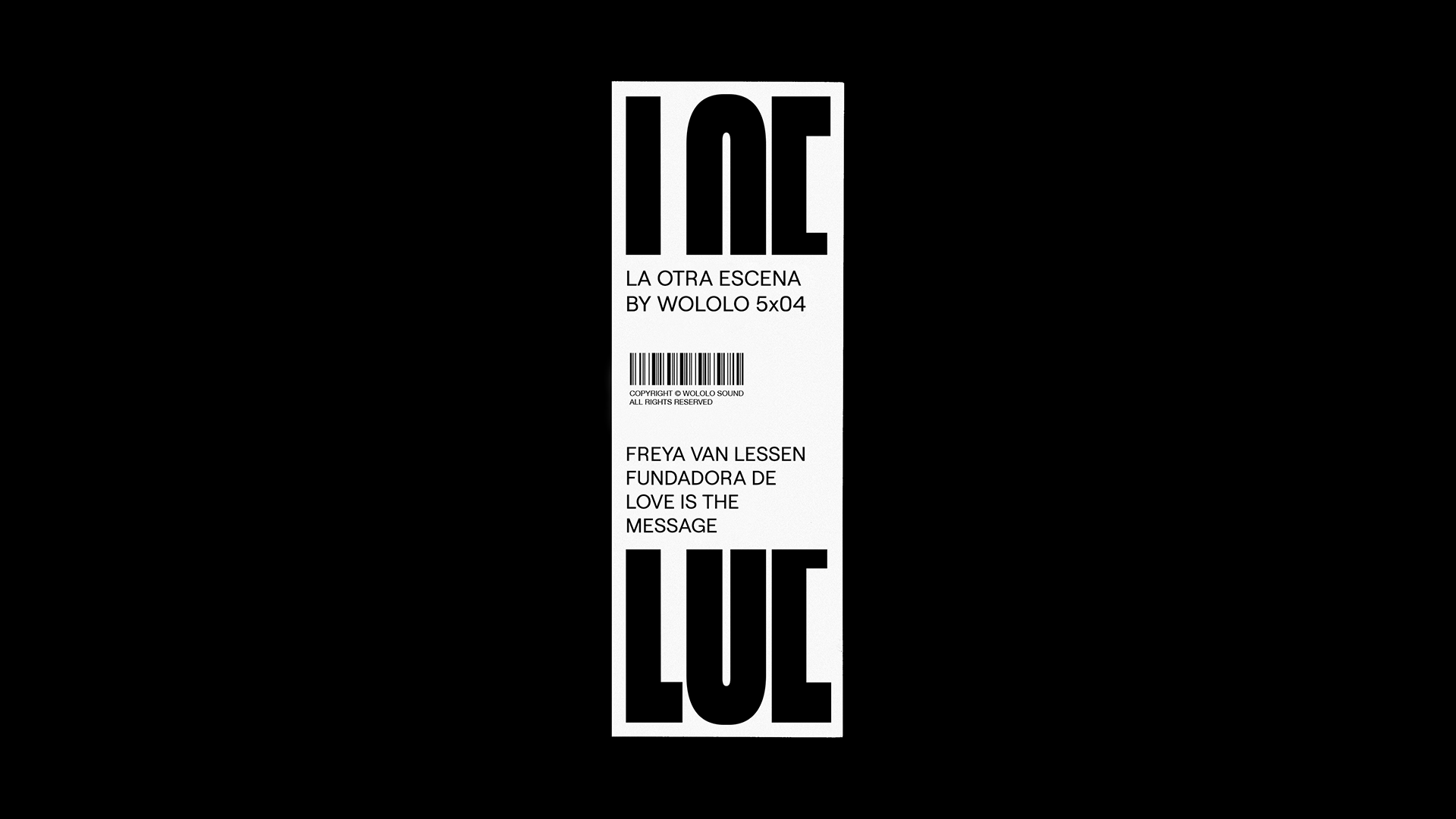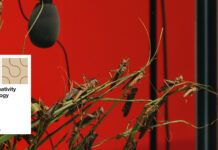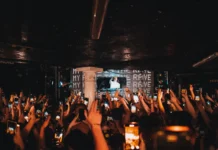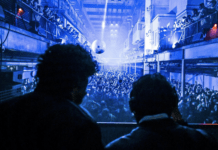En este nuevo episodio de ‘La Otra Escena’ tenemos a Freya Van Lessen, encargada de prensa de salas y festivales como Printworks London o Tobacco Dock y fundadora de la agencia “Love Is The Message”
Entre las marcas con las que ha trabajado esta experta en producción encontramos Rinse FM, Printworks, Tobacco Dock o Field Day, siendo una experimentada en la industria musical. !Vamos con las preguntas!
WS: Eres ya una experimentada dentro de la comunicación del sector musical, contando con más de 10 años de trabajo en la escena. ¿Te fue difícil comenzar? ¿Cuáles fueron tus primeros trabajos?
F: En realidad es la clásica historia de empezar desde abajo y trabajar hasta llegar arriba. Tenía 24 o 25 cuando me enamoré de los eventos musicales. Mi primer “trabajo” fue trabajar como fotógrafa para una revista online llamada Zap Band. No me pagaban, pero me dieron muchas entradas gratis para cubrirles eventos, lo cual me encantaba. En el mejor momento, ¡cubría unos 16-18 festivales al año!
Después en 2009/2010 fui parte del equipo que organizaba un festival antirracista en Finsbury Park, Londres, llamado UpRise – el festival era gratuito, lo cual significaba que teníamos que recaudar todo el dinero nosotros mismos – y por supuesto éramos voluntarios que teníamos trabajo a jornada completa al mismo tiempo. Era un trabajo durísimo, pero también una de las cosas que las que más orgullosa estoy.
El primer trabajo que tuve en la comunicación era de prácticas y sin cobrar para Mouris PR (que ya no existe). Esto fue sobre el 2010/2011 y en aquel entonces la ruta más común para entrar a la industria era como becario sin cobrar – por suerte, ahora es un requisito legal pagarle a los becarios un salario mínimo. Después de tres meses trabajando gratis como asistente de prensa para eventos, me ofrecieron un trabajo a media jornada trabajando dos días a la semana y poco después rápidamente conseguí un trabajo a jornada completa para FOUND Series.
WS: You are an experienced worker within the musical industry communication world, with more than ten years in the scene. Was it difficult to get started? What were your first jobs?
F: It’s actually a really classic story of starting at the bottom and working my way up. I was already 24 or 25 when I fell in love with music events. My first ‘job’ was working as a photographer for an online magazine called zap bang. I didn’t get paid, but I did get lots of free tickets to cover shows for them, which I really loved. At the peak, I was covering maybe 16-18 festivals per year!
Then in 2009/10 I was part of a team that organised an anti-racism festival in Finsbury Park, London called UpRise – the festival was free-to-attend, which meant we had to fundraise all the money ourselves – and of course we were volunteers working in full time jobs at the same time. It was super hard work – but is also one of the things I’m most proud of doing.
The first job I got in communications was as an unpaid intern for Mouris PR (which no longer exists). This was around 2010/11 and back then, the most common route into the industry was via unpaid internships – thankfully it’s now a legal requirement to pay interns minimum wage – After 3 months working for free as the Event PR assistant, they offered me a part time job working 2 days per week and then quickly I got a full time job working for FOUND Series.
WS: Has trabajado con destacadas marcas como Broadwick Live, The Rest Is Noise o Listen Up. ¿Cúal es el momento que te hace apostar de lleno por esta vida?
F: ¡Es algo que nunca me he parado a pensar! Al principio trabajar en comunicación no era mi objetivo – era solo la primera oportunidad. Pero me enamoré un poco. Todavía me siento parte del equipo de los eventos – ¡de todos los equipos! E incluso después de 12 años, todavía siento un cosquilleo cuando estoy en el escenario y veo a todo el mundo disfrutar del espectáculo… Es algo mágico.
Una de las cosas que más me gustan de mi trabajo es contar historias. En serio, es todo lo que hago. Me ENCANTA la cultura de la música electrónica y durante mi carrera ha sido una dura batalla para ganar el reconocimiento cultural que merece. Y a veces encuentras la revista correcta o el periodista adecuado, y los artistas o temas perfectos y creas un artículo súper especial… Cuando esto pasa, hace que todo el trabajo valga la pena.
WS: You have worked for remarkable brands such as Broadwick Live, The Rest Is Noise or Listen Up. What was the moment that made you put faith into this job?
F: That’s something I’ve never really considered! At the beginning it wasn’t my goal to work in communications – it was just the first opportunity. But I did fall in love with it a bit. I still get to feel really like part of the event team – all the teams! … And even after 12 years, I still get a tingle when I stand on the stage and look at all the people enjoying the show… it’s a little bit magic.
One of the things I love the most about the job is telling stories. Really, that’s all I do. I LOVE electronic music culture and during my career, it’s really been a fight to gain the cultural recognition it deserves. And sometimes you find just the right magazine or journalist, and the perfect artists or subject and create an article that is super special… It really makes all the work worth it when this happens.
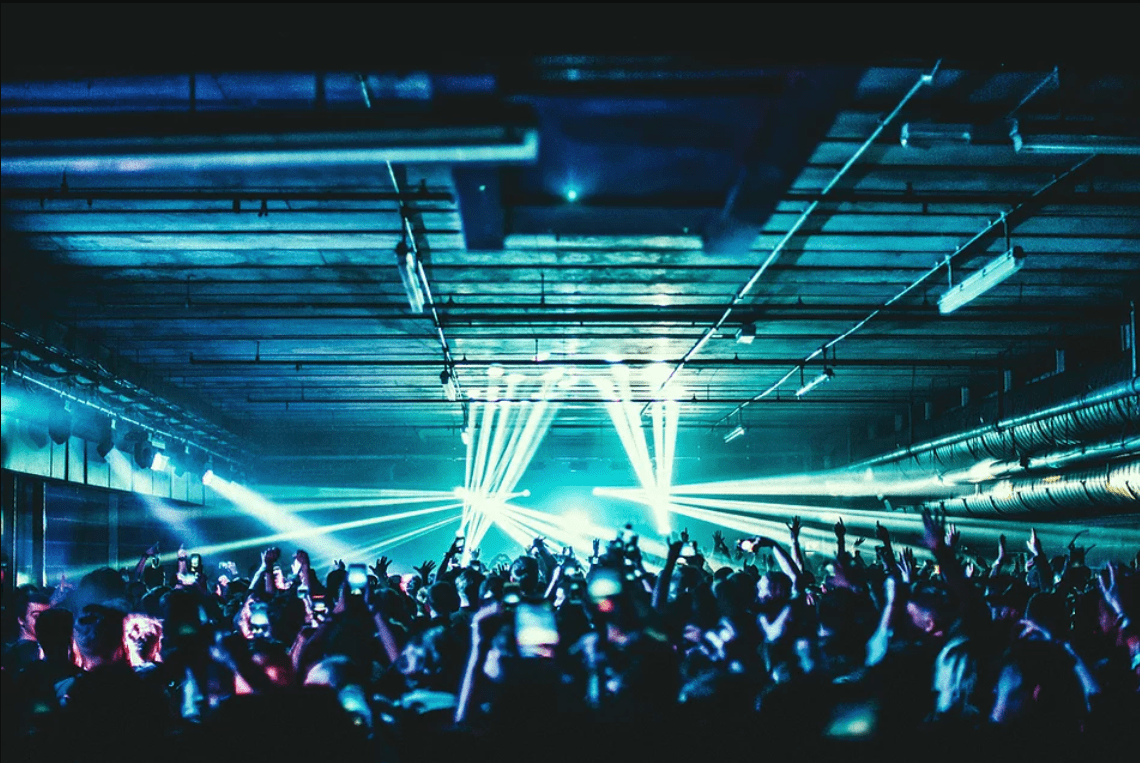
WS: ¿Cómo llevaste la pandemia cuando toda la industria musical se paró? ¿Cómo te fue laboralmente?
F: Fue un reto. Me encargo también en la comunicación de crisis, así que para empezar estaba muy ocupada, escribiendo docenas de comunicados al día y pendiente de las noticias en todo momento… Al principio, nadie imaginaba que duraría tanto. Cuando tuvimos que cerrar el local y dejar la oficina, ¡pensábamos que volveríamos en dos semanas¡… ¡Parece una locura ahora!
Después de dos meses de permiso, me despidieron de mi puesto en Broadwick Live junto al 35% de la empresa. Fue doloroso ver a tantos amigos perder su empleo y sin trabajo disponible.
WS: How did you lead with the pandemic when the whole music industry stopped? How was it in terms of work?
F: It was a bit challenging. I look after the crisis communications too, so to start with, I was super busy – writing dozens of statements each day and following the news every second… At the start, no one imagined it would last so long. When we had to close the venue and leave the office, we all thought we would be back in 2 weeks!!.. It seems crazy now!
After 2 months on furlough, I was made redundant from my role at Broadwick Live along with 35% of the company. It was heart-breaking to see so many of my friends losing their jobs and with no work available.
WS: Aún con la industria musical parada, en octubre del 2020 decidiste dar un paso en tu carrera y crear Love Is The Message, una boutique de relaciones públicas y comunicación. ¿Qué te hizo tomar esta decisión? ¿Cuánta gente la conforma?
F: La verdad, no sentía que hubiera otra opción para mí. No había nada de trabajo, así que creé el mío propio. Tenía un cliente, el Tobacco Dock Virtual, y todavía estaba trabajando a ratos con Broadwick Live. No había mucho, pero era un comienzo. Hasta el final de febrero todo estuvo bastante tranquilo con el trabajo. Pero en cuanto el Gobierno anunció que los eventos iban para adelante este verano, se desató la locura. ¡En tan solo tres semanas estaba hasta arriba! ¡Fue hasta agobiante!
La familia de ‘The Message’ ya está creciendo. Mi buena amiga Marie Dapoigny ha estado trabajando a media jornada para ayudarme – trabajamos juntas en Listen-up y después ella era redactora en Mixmag Francia hasta la pandemia. Ella está en París, donde todavía siguen confinados.
También he colaborado con mi amiga Dresden Leitner. Ha hecho un trabajo similar al mío con proyectos como el AVA Festival y Eastern Electrics. Esta era la primera vez que uníamos fuerzas 🙂 La mayoría trabajamos en nuestros propios proyectos, pero justo hemos confirmado el primero que vamos a compartir.
WS: Even though with the music industry stopped, in October 2020 you decided to take a step forward in your career and create Love Is The Message, a public relationships and communication boutique agency. What made you make this decision? How many people work on it?
F: To be honest, I didn’t feel like there was another option for me at the time. There weren’t really any jobs, so I made my own job. I had one client – Tobacco Dock Virtual – and I was still working off-and-on with Broadwick Live. It wasn’t much but it was a start.
Until the end of February it was very quiet with work. But as soon as the Government announced that events can go ahead this summer, it went crazy. Within three weeks I was full up!!… It was a bit overwhelming really!
Already ‘The Message’ family is growing. My good friend Marie Dapoigny has been working part time to help me – we worked together at Listen-up and then she was Editor at Mixmag France until the pandemic. She’s in Paris where they are still in confinement.
I’ve also partnered with my friend Dresden Leitner. She has done very similar work to me with projects like AVA Festival and Eastern Electrics. This is the first time we joined forces 🙂 Mostly we work on our own projects, but we’ve just confirmed the first one that we will share.
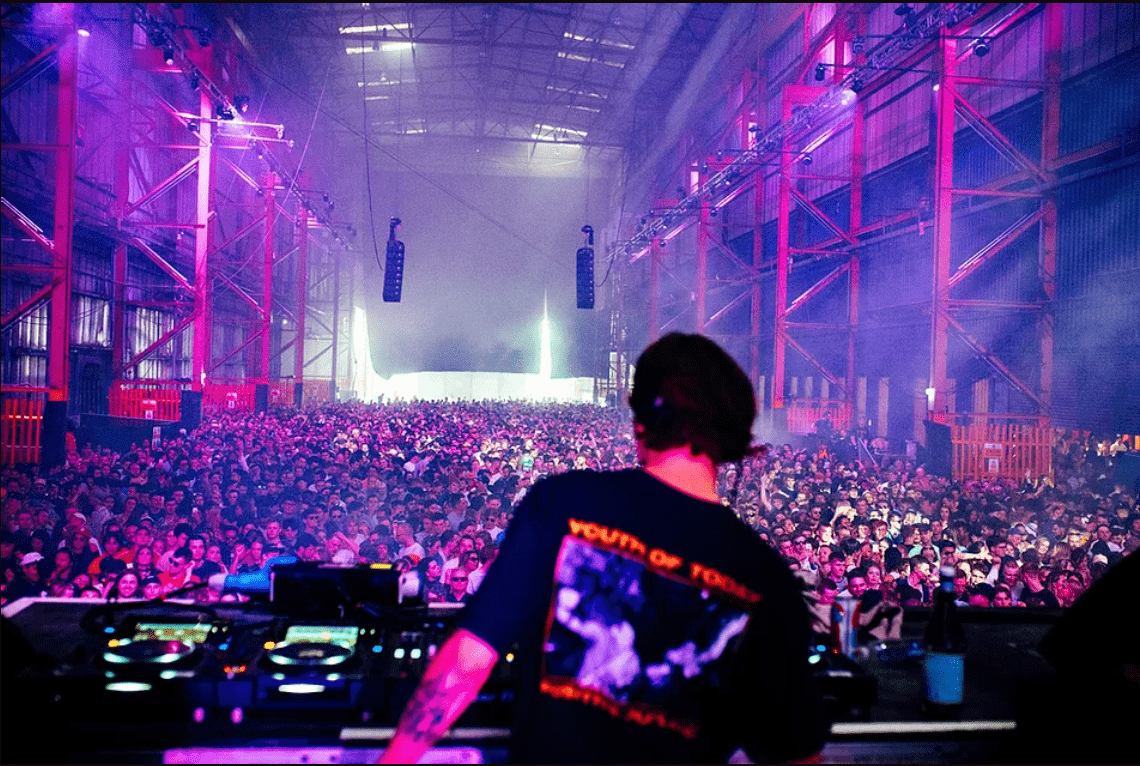
WS: Actualmente trabajáis con importantes empresas y marcas como Printworks, The Drumsheds, Rinse FM o We Are The Fair y festivales como Field Day, Inner State o Kala Festival. ¿Cómo se consigue llamar la atención de organizaciones de este calibre? ¿Cúal es vuestro método de trabajo?
F: No hay mucho misterio. Trabajo duro e intento llevarme bien con la gente. Tener una buena reputación es el recurso más valioso. La industria de la música electrónica en realidad no es tan grande y todo el mundo habla entre sí. Como la mayoría de industrias, si haces un buen trabajo y eres apacible para trabajar en equipo, tienes recorrido de sobra 🙂
WS: You are currently working with big companies and brands such as Printworks, The Drumsheds, Rinse FM or We Are The Flair and festivals like Field Day, Inner State or Kala Festival. How do you manage to attract these huge organisations’ attention? What’s your working method?
F: There’s no big secret. I just work hard and try to get along with people. Having a good reputation is the most valuable asset. The electronic music industry is actually not so big and everyone talks to each other. Like most industries, if you do a good job and you’re pleasant to work with, then it goes a long way. 🙂
WS: Love Is The Message también se encarga de representar a algunos artistas y sus trabajos, ¿cómo es el proceso de representación de un artista? ¿Qué criterios tenéis para aceptarlos?
F: Personalmente, solo tengo un par de proyectos de artistas viniendo de Citizen Records, con Vitalic y John Lord Fonda, estoy compartiendo ambas campañas con Marie. El proyecto de Vitalic es muy especial para mí. Cuando oí por primera vez su álbum ‘V Live’ en 2005, fue la primera vez que entendí la música electrónica. Se me encendió la luz y la verdad, no volví a mirar atrás. Me cambió la vida, eso es seguro. Trabajar con él me hace sentir como que el círculo se ha cerrado 🙂
Dresden trabaja más en este área y tiene algunos artistas guapísimos como GLOR1A y Jail Time Records.
Si trabajas con artistas, es importante que conectes con ellos. Con eventos y festivales, hay casi siempre un ángulo interesante que puedes ver – si no es el line-up, es la localización, la cultura, la historia… Pero con artistas, o conectas o no.
WS: Love Is The Message is also in charge of representing some artists and their work, how is the process of representing an artist? What criteria do you follow to accept them?
F: Personally, I’ve only got a couple artist projects coming up for Citizen Records – with Vitalic and John Lord Fonda – both campaigns I’m sharing with Marie. Vitalic’s project is really special to me. When I first heard his ‘V Live’ album in 2005, it was the first time I really understood electronic music. The light switched on and really, I never looked back. It changed my life for sure. Working with him now, feels like the circle has closed 🙂
Dresden works more in this area and has some super cool artists like GLOR1A and Jail Time Records.
If you’re working with artists, it’s important that you can connect with them. With events and festivals, there’s nearly always an interesting angle you can think of – if not the lineup, then the location, the culture, the history… but with artists, either you connect or you don’t.
WS: ¿Qué consejos le darías a alguien que se quiere dedicar a la comunicación y relaciones públicas en la industria musical?
F: Primero, sé honesto y diplomático. Como dije antes, la industria no es tan grande y puedes estar casi seguro de que tu camino se cruzará con el de alguien de nuevo. No siempre es fácil. Siempre hay grandes egos e incluso algún **** ** **** más grande aún… Pero no tiene sentido perder el temperamento.
Lo segundo, tomarte tu tiempo para comprender de verdad a tus clientes y los proyectos. Cada uno es único y a menudo la manera en la que presentas o explicas cosas a los clientes es igual de importante que los propios resultados. Solo averiguarás la mejor manera de comunicarte con tus clientes una vez que los conozcas. Estoy muy feliz de poder decir que tengo muchos amigos cercanos que empezaron como clientes.
Por último, a veces las cosas no salen como uno planea… Pero intenta no preocuparte. Preocuparte solo te dará arrugas. Solo podemos hacerlo lo mejor posible y nadie puede hacer más. Y nadie consigue hacerlo todo perfecto. Si las cosas van mal, tómate un respiro y traza un plan para encarrilar las cosas. La mayoría de veces, solo necesita algo más de trabajo o una nueva idea… Y si eso no funciona, a menudo se aprende más cuando todo va mal que cuando todo va bien. A veces tienes que sumarle cosas a la experiencia.
WS: What advice would you give to someone that wants to work at communication and public relationships in the music industry?
F: First, always be honest and diplomatic. Like I said before, the industry isn’t so big and you can almost be certain that you’ll cross paths with people again. It’s not always easy. There are some big egos and some even bigger $£@!* … But there’s never any point really losing your temper.
Second, always take the time to really understand your clients and the projects. Each one is unique and often the way you present or explain things to clients is just as important as the results themselves. You will only know the best way to communicate with your clients once you’ve got to know them. I’m very happy to say I have many close friends who started as clients.
Finally, Sometimes things don’t go as you planned… but try not to worry. Worrying only gives you wrinkles. We can only do the best we can and no one can do more. And no one gets everything right. If things go wrong, just take a moment and make a plan to get things on back on track. Most of the time, it just needs a bit more work or a new idea… and if that doesn’t work, then often you learn more when things go wrong than when things go right. Sometimes you just have to chalk things up to experience.
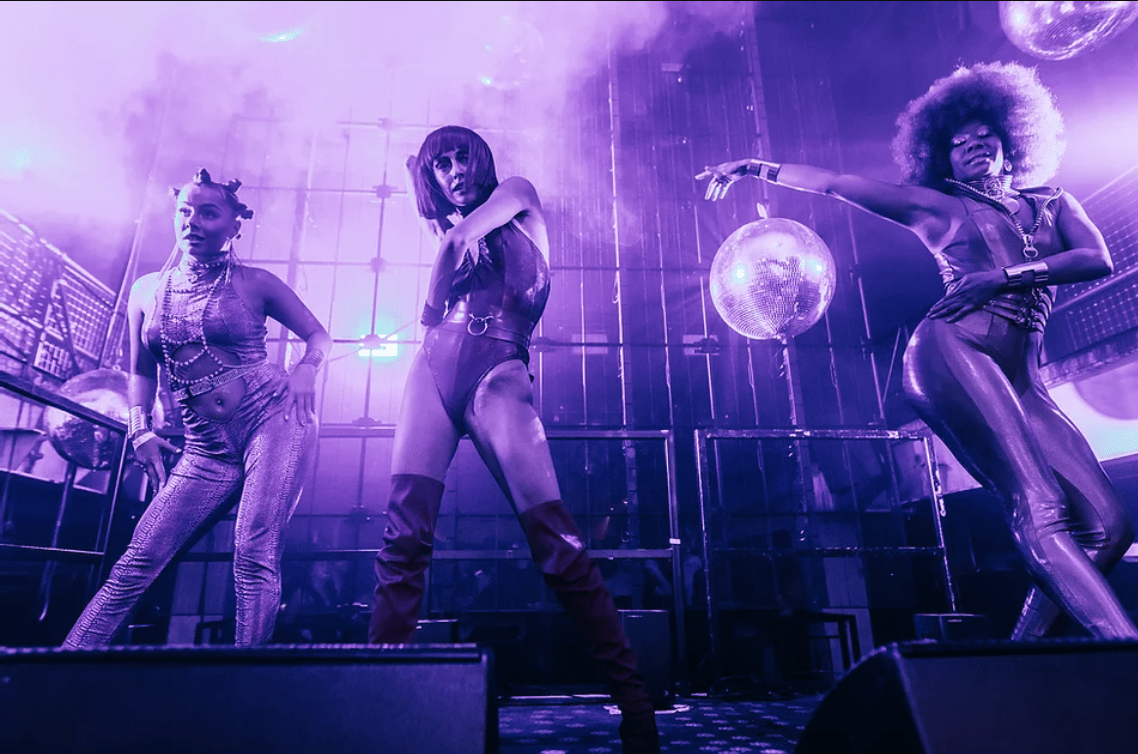
WS: Ya estamos viendo las primeras fiestas sin distancia de seguridad en Reino Unido, consiguiendo, como era de esperar, una gran respuesta. ¿Conseguirá la escena británica recuperarse a corto medio plazo?
F: Eso espero. Creo que a corto plazo es un poco ambicioso, pero a medio-larzo plazo, seguro. Creo que algunos eventos pequeños, de 10.000 o menos, podrán salir adelante este verano, pero creo que los festivales más grandes aún están en riesgo. También creo que habrá una necesidad de tener sistemas de pruebas consistentes en lugares como los clubes para que sigan abiertos de manera segura este invierno… Pero también creo que hay algunas cosas positivas que sacar de esto… Espero que a medida que las cosas empiecen a ir de nuevo haya un aumento de ventas de artistas y eventos más pequeños e independientes… Y un foco más fuerte en los artistas y la música británica, lo cual es tremendo para la cultura y también la economía…
WS: We are already seeing the first gigs without social distancing in the United Kingdom, getting, as expected, a huge response. Will the British scene be able to recover in short or mid-term?
F: I hope so. I think short turn is still a bit ambitious, but mid – long turn, definitely. I think some smaller events – 10,000 or less – will be able to go ahead this summer, but I think the larger festivals are still at risk. I also think there will be a need to have robust testing systems in place for clubs to remain open, safely, this winter… but I also think there are some positive things to come from this… Hopefully as things start happening again, there will be an upsell of smaller, independent events and artists… and a stronger focus on UK music and artists, which is great for the culture and the economy too…
WS: ¿Cómo crees que ha llevado el Gobierno inglés la situación del ocio nocturno y escena clubbing? ¿Os sentís apoyados?
F: La verdad es que no. Ha habido algo de apoyo para el ocio nocturno, pero no ha sido suficiente para salvar a la mayoría de las salas. Y el gobierno ha impedido desarrollar un plan sensible para salas y clubes, fue la primera industria en cerrar y será la última en reabrir. El apoyo que se ha dado no es ni de cerca el que se necesitaba.
WS: How do you think the English Government has managed the situation with nightlife and the clubbing scene? Do you feel supported?
F: Not really. There has been some support for the nightlife industries, but it’s not enough to save most of the venues. And the government have really avoided coming up with a sensible plan for venues and nightclubs – it was the first industry to close and it will be the last to reopen. The support provided doesn’t come close to what was needed.
WS: ¿Veremos una escena más unida y empática cuando volvamos a la normalidad?
F: Eso espero, desde luego. Si hay una sola cosa positiva que sacar de todo esto, es que todo el mundo tuviera que unirse y apoyarse para luchar juntos. Espero que esta actitud continue.
WS: Will we see a more united and empathic scene when we are back to normality?
F: I certainly hope so. If there’s one positive thing to come from all this, it’s that everyone had to come together to support each other and fight together. I really hope this attitude continues.
WS: Al estar en continuo contacto con artistas, clubes y festivales, nos gustaría saber cual es tu opinión acerca de la cultura musical actual. ¿Hacia dónde crees que se dirige la industria?
F: Creo que veremos una polarización entre la cultura musical underground y la comercial. La cultura siempre parece moverse de manera circular… Donde lo underground o lo popular se acerca más y más hasta que es difícil notar la diferencia. Y luego pasa algo y ¡boom!… Vuelven a alejarse… Creo que los veremos separarse de nuevo y, con suerte, todo tipo de cosas interesantes empezarán a surgir.
WS: Being in touch constantly with artists, clubs and festivals, we would like to know your opinion about the current music culture. Where do you think the industry is heading towards?
F: I think we will see a polarisation between the underground and mainstream music cultures. Music culture always seems to move in circular motions… where the underground and overground get closer and closer until it’s hard to tell the difference… and then something happens and boom!… they shoot apart again… I think we see it shoot apart again and hopefully, all sorts of interesting things will start to rise up…



